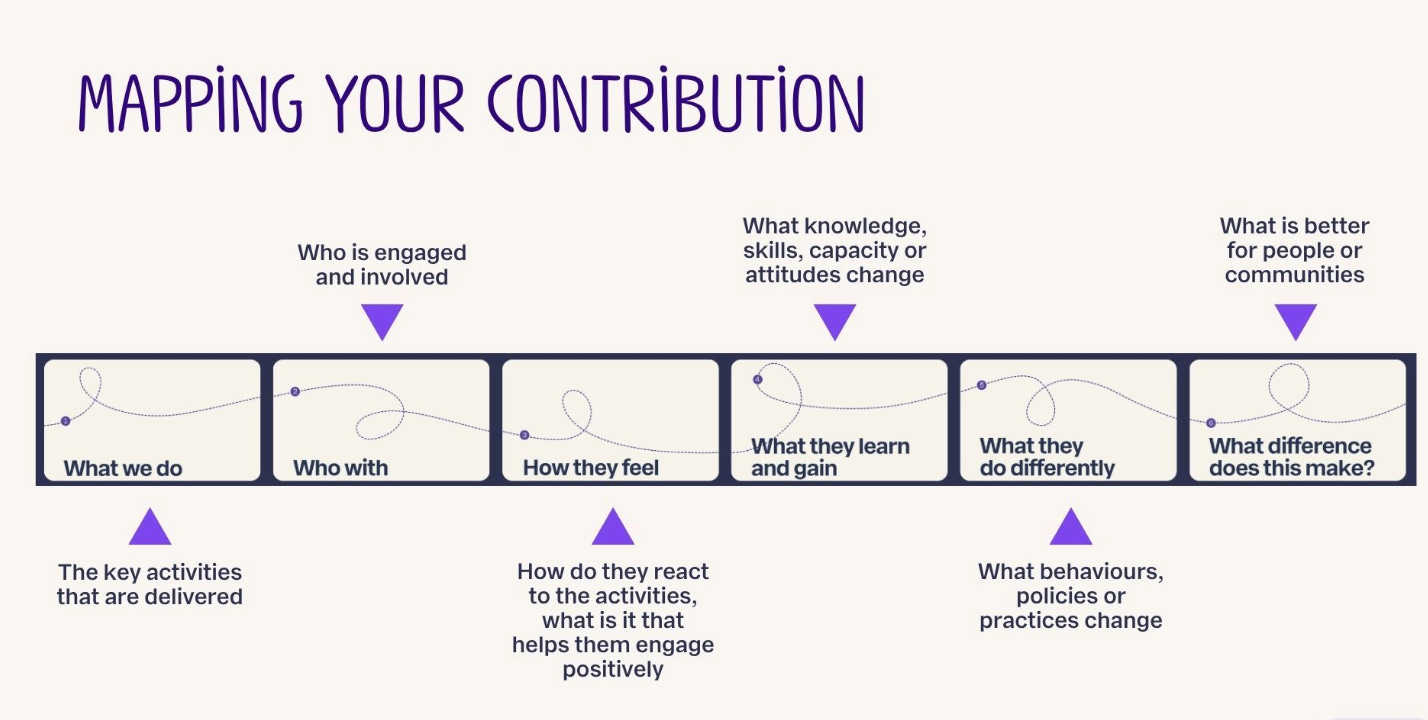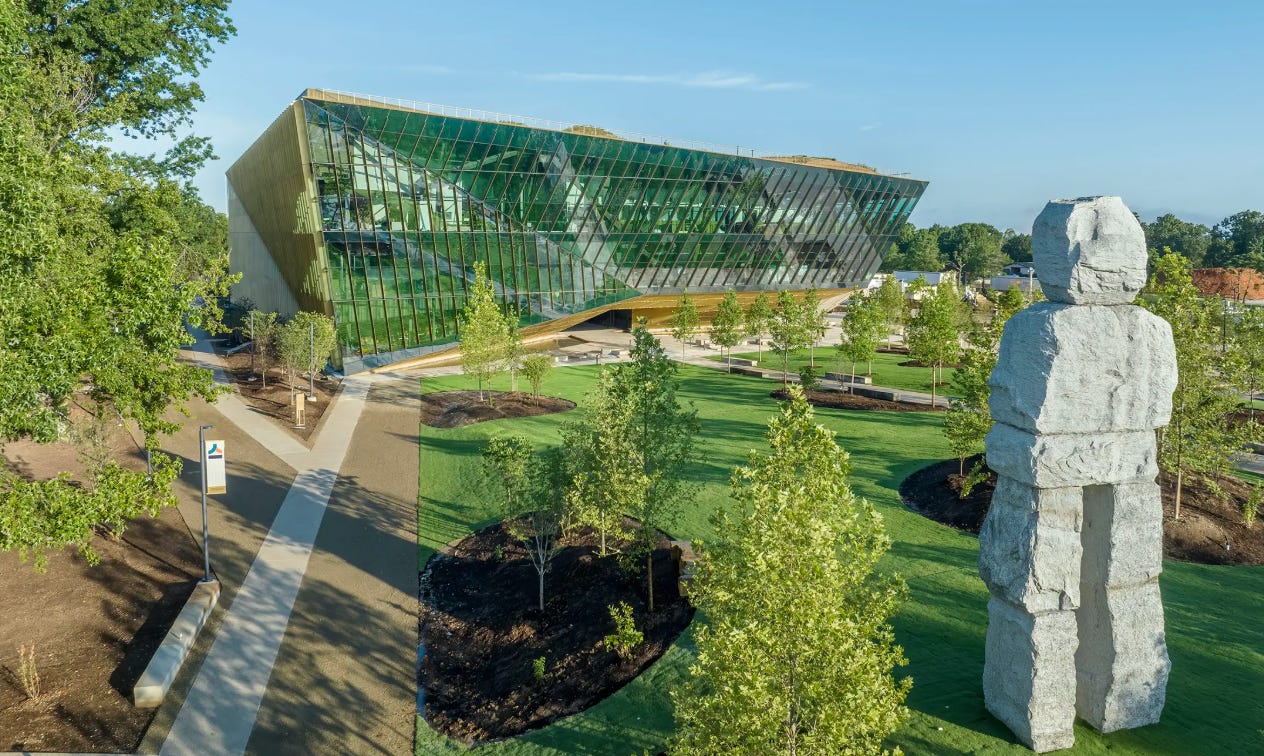Four For Friday | Aug 8, 2025
LF184 | Impact 'contribution analysis', Walmart's new school of medicine, friends as medicine and Google's digital twin. Plus AI apps: Mocha, Launch.
Welcome to this week’s Four For Friday. Apologies, I skipped last week’s LF in error, doh. Anyway this week, we have a new take on impact measurement, two exciting examples of holistic healthcare and a digital twin for the planet. Plus the AI tip of the week will help you code apps with no tech background.
1. Thinking differently about impact metrics
This post argues that the dominant ‘theory of change’ is needs a reboot. The current approach for measuring impact is generally linear, a point solution and deterministic; i.e. it assumes that X leads to Y, one intervention is all that matters, and if you do the same thing in future elsewhere you’ll get the same result.
But of course, our challenges are complex , and as such they don’t lend themselves to this simple game of noughts and crosses.
Instead ‘Contribution Analysis’ links activities to outcomes without claiming causation, tests assumptions systematically, considers the broader context and builds evidence frameworks.
The So What? I agree that the current theory of change is too limited. The problem is, like GDP, better alternatives have yet to break through. Maybe AI can help us with the messy job of attribution.
2. Is that what the medical school of the future looks like?
As they say, the future is here, just unevenly distributed; and it seems that one of the pieces of the future is in Arkansas.
The worlds richest woman – Alice Walton, from the Walmart fortune family has set up a medical school that is as impressive as it acronym is well, awesome. AWSOM - the Alice Walton School of Medicine.
The first 48 students are starting this summer Bentonville, Arkansas, next to Walmart HQ. It’s offering free tuition for its first five classes (a not insignificant investment itself, given the eye watering cost of a medical degree) and emphasizes "whole health" education—integrating arts, humanities, and holistic patient care into traditional medical training. It aims to prioritize physician wellness and comprehensive patient care (so nutrition, exercise and stress reduction will be on the menu, in addition to medications and procedures).
The So What? Changing systems starts with education and mindset. Hopefully this can be a blueprint of a more preventive health system.
3. Community as Medicine
Continuing the theme of prevention and holistic wellness, enter ‘community as medicine’. One of the many ways in which healthcare is broken today is that patients are left with a set of things to do on their own, with no real community support. Dr Elizabeth Markle, a California psychologist is changing that with her non-profit, OpenSource Wellness.
Markle argues that healthcare should leave patients feeling "uplifted, honored, empowered and connected" rather than shamed and isolated. Her non-profit partners with insurers and government agencies to combine clinical care with community support.
The approach feels back to the roots before medicine become industrialized and population health and individual health become separate disciplines. She advocates for "psychological upstreamism" - addressing wellbeing through belonging and social design rather than traditional medical interventions alone. It's a refreshingly human take on an increasingly impersonal system.
The So What? Interesting that it takes a psychologist not a doctor to spearhead community wellness. Another blueprint for a better model that could deliver physical, emotional and mental health.
4. Google’s ‘digital twin’ for the planet
Google DeepMind has launched AlphaEarth Foundations - an AI system that acts as a "virtual satellite" by synthesising optical imagery, radar data and climate simulations into comprehensive digital maps of Earth's surface. There’s an accompanying paper to go with it.
The technology compresses each 10-metre square into 64-dimensional "embeddings" that capture a year's worth of observations, achieving 16 times greater storage efficiency than competitors whilst reducing errors by 24%. It’s already processing 1.4trn data points annually through partnerships with the UN and Stanford University.
The So What? Google seems to be looking to be the dominant infrastructure for climate monitoring.
Bonus AI Tip of the Week: Mocha & Launch
Two new no-code tools have landed that seem to make it easier than ever to build no apps and services with a prompt: Mocha and Launch. Would love to hear about folks’ experience with them - especially those with no coding background.
That’s all for now - happy weekend everyone.
- Stephen





